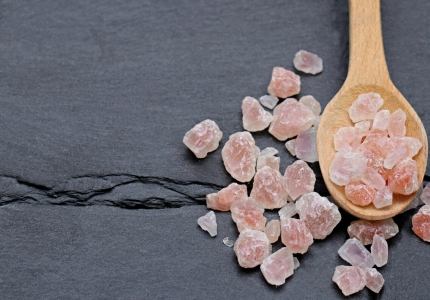How to eat healthy is the big question nowadays. Food is the fountain of our wellbeing. Having a balanced eating regime is crucial to our optimal performance in life. It is no secret, however, that we live in a world ruled by processed foods and that we have fostered unhealthy lifestyles. We can blame capitalism and the big, bad industries that are poisoning us, but the truth is we do have a choice and the power of navigating through this sea of confusion and pluck out specific healthy foods and ingredients that are definitely healthier than others.
Fundamental concepts for a balanced diet
Contrary to popular belief, a diet is simply your food regime, or the sum of different foods you consume. Fad diets like Atkins and South Beach aim to seclude certain food groups to tackle specific problems, such as hunger control and weight loss. Although that may sound great, any diet that excludes other food groups is very hard – if not impossible- to maintain. The good news is that we can make our own healthy diet that fits our unique and specific needs, which should work exclusively for us. The most important thing to know is the fundamental concepts to achieve our ideal diet.
Nutrients
Nutrients are essential substances that our bodies cannot produce by themselves, and are necessary for us to function properly. There are two types of nutrients: macronutrients, which we require in large amounts, and micronutrients, which we need in lesser amounts, but still crucial to maintain our health and a range of other physiological functions.
Important macronutrients are proteins, carbohydrates and fats, and micronutrients are fat soluble vitamins (vitamins A, D, E, K), minerals (calcium, sodium, potassium, zinc, iron), and water soluble vitamins (vitamins B1, B2, B6, B12, C, and folic acid).
Drink water
Needless to say, water is life. Drinking copious amounts of water every day not only keeps us hydrated; it also boosts our immune system, replenishes our energy levels, increases our brain power and flushes out the toxins from our bodies. It is also great for our skin!
Seasonal fresh food
Seasonal foods are best consumed during the same time of the year they are grown. Buying locally is the best way to ensure that your food is fresh and seasonal. One of the great things about seasonal foods is that they are gathered at their peak and have very little time to spoil. Not only will we have tastier and healthier food in our stomach, but we will also have a wider variety of ingredients in our diet, while supporting our local, sustainable farmers as well.
Condiments and oils
Believe it or not, some condiments and oils are very healthy for your body. Although condiment is a term mostly used for preserved foods, it is also a sauce, spice or preparation that is incorporated to particular foods or dishes to add, enhance or compliment flavors. Some healthy condiments include hummus, pesto, guacamole, chutney and mustard. Oils like canola and soybean contain Omega-3, which help decrease blood pressure and help your body absorb nutrients from other foods.
Balance and variety
As everything in life, eating too much, or too little, of a specific food group or nutrients can be detrimental to your health. Going to extremes makes your body do the same, and the body does not thrive in extremes. Our diet needs a mixture of nutrients that are found across different food groups and ingredients. If we want to have a healthy life, we must find the balance in combining these and eating the right amounts for us.
Essential foods
We all know that processed foods come packed with excessive chemicals. Essential foods are those that are crucial to maintaining a healthy life, including fresh fruits, vegetables, unrefined whole foods, whole grains and beans. These foods are usually unprocessed and chemical-free, and they give us the nutrients we need.
Cooked vegetables
Although it has been said and repeated that cooking vegetables makes them lose their nutrients, it is not always the case. Not only are cooked vegetables delicious; it has been demonstrated that most of their nutrients are tied to the cell walls. Cooking vegetables actually makes the walls break down and releases the nutrients, making it easier for our body to absorb them.
Raw vegetables
Raw vegetables are incredibly nutritious and healthy, which is why vegans go crazy over them. They are low in calories, contain a lot of water, and are packed with nutrients that diminish our likelihood for certain diseases like cancer and heart disease. They can also aid us in controlling our weight.
Cereals
Cereals and seeds can be essential in our meals. We can expand our use of them by researching different cereals and seeds that perhaps we did not know until now: oats, barley, sorghum, flax seeds, buckwheat, spelled, millet or Quinoa, which is not a cereal but is a seed that is consumed as such, among others. Known as a staple crop because of the great amount of food energy they provide, cereal is a low-fat food, full of essential minerals and vitamins that also makes for a great breakfast. Most cereals have a generous amount of fiber, which helps to reduce cholesterol levels and keeps our bowels happy.
Customize your diet
Diets are not a one size fits all. Every single person has different genes and body composition, which means that every body has different needs. Although eating processed foods is detrimental to health in general, obsessing over the foods you eat is not helpful at all. Your diet should be customized, as often or as little as you wish, depending on your health goals and body needs. As we age, these needs change and we should be ready to adjust accordingly in order to better enjoy our wellbeing.
If you’ve enjoyed this articles, you should read Superfoods, how to add them to your diet.



